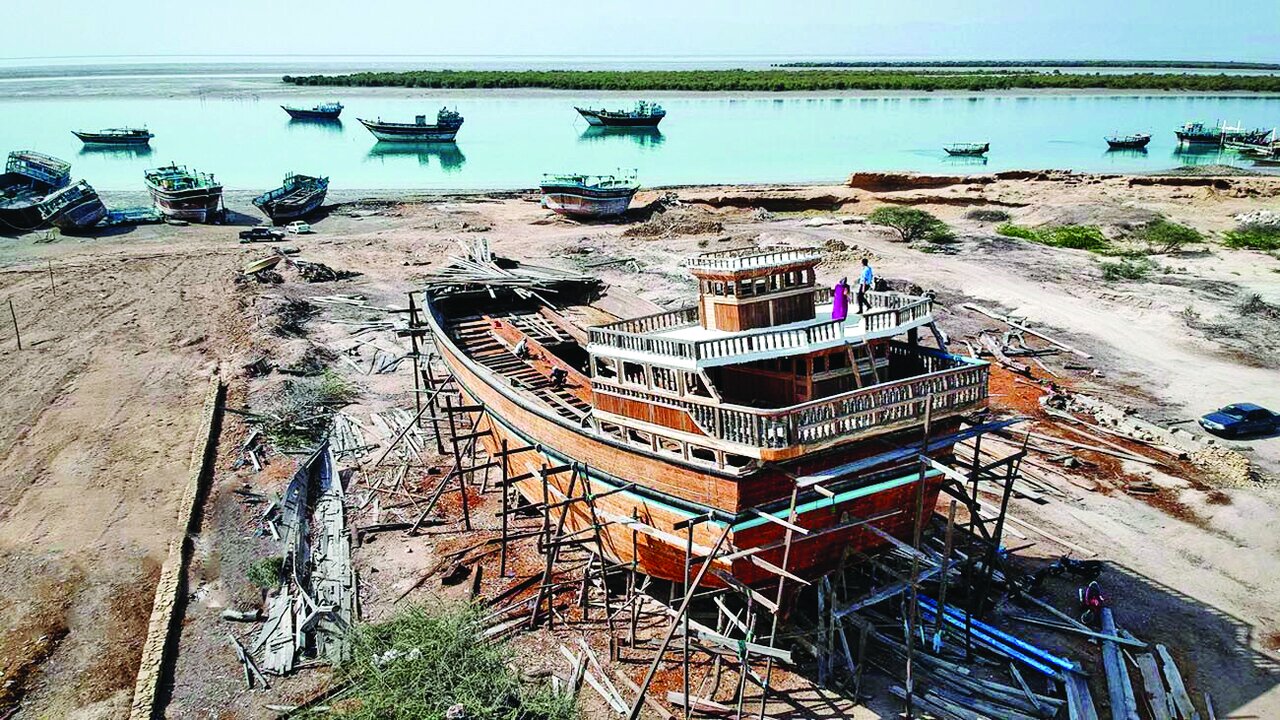Lenj boats: Is UNESCO status enough to save a cultural heritage?

TEHRAN - In 2011, the traditional skills of building and sailing Iranian Lenj boats gained a place on UNESCO’s list of Intangible Cultural Heritage.
However, over the past couple of years, there have been critical voices warning about an imminent threat to that time-honored know-how, which is tied to many cultural values.
Moreover, there are growing concerns that this element is at risk of being removed from UNESCO's list of intangible cultural heritage.
Generally speaking, the UN recognition distinguishes the importance of the preservation and protection of the Lenj construction boat as the unique maritime heritage of southern Iranian coasts.
The Iranian Lenj boats are traditionally hand-built and used by the people of the north coast of the Persian Gulf for sea voyages, trade, fishing, and pearling. As mentioned by the UN cultural body, the traditional knowledge surrounding Lenj vessels includes oral literature, performing arts, and festivals, in addition to sailing and navigation techniques as well as terminology and weather forecasting associated with sailing, and the skill of boating.
The maritime knowledge used for sailing in Lenjes is traditionally passed down from father to son. Iranian navigators can locate ships based on the positions of the sun, the moon, and stars; they used special formulas to calculate latitude and longitude, as well as water depth.
As for the impending threats, several factors contribute to the potential loss of UNESCO status for that skill passed down from generation to generation.
Firstly, a rapid pace of modernization and urbanization in Iran, especially in the coastal areas, has led to a decline in the practice and spread of traditional skills related to Lenj building and sailing.
Moreover, the younger generations are increasingly losing interest in acquiring these skills, opting for more modern forms of employment.
Secondly, as the world becomes more interconnected, traditional practices and cultural heritage are gradually being eroded when young people are exposed to a globalized culture, which causes changes in values, lifestyles and preferences.

Finally, the lack of awareness and appreciation of the cultural significance of Lenj boats may contribute to their decline. Without active efforts to educate people about the importance of these traditional skills, there will not be enough support to sustain them. The lack of public interest may ultimately damage UNESCO's position on this intangible cultural heritage.
Amid ongoing concerns about the potential loss of UNESCO status to Iran's traditional Lenj boating and boating skills, many measures may be taken more than ever to mitigate the threats.
Educational programs, workshops, and exhibitions may be among the smart initiatives to raise awareness of traditional boating and craft techniques. Local communities may be more encouraged to take part in festivals and cultural exchange programs aimed at reinforcing the importance of ancient maritime skills. On the other hand, government bodies, NGOs, and cultural agencies should join hands to provide further financial support for the preservation of boat-building skills.
By raising awareness, involving the community, and providing legal and financial support, steps can be taken to ensure the continued survival of the Lenj boat tradition, allowing future generations to appreciate its rich historical and cultural significance.
AFM
